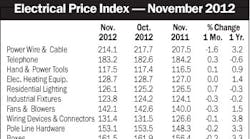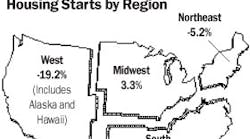The finding last month by a district court jury that Breakers Unlimited, Noblesville, Ind., purchased and sold counterfeit Square D circuit breakers was just the latest skirmish in a long campaign by Schneider Electric, Palatine, Ill., which owns the Square D brand, to put a stop to the growing problem of commerce in counterfeit electrical products. It also highlights some of the complexities inherent in the surplus market for electrical equipment.
The jury in the U.S. District Court for the Southern District of Indiana in Indianapolis on June 25 found in favor of Schneider Electric in the suit, finding Breakers Unlimited guilty of purchasing and selling counterfeit Square D QO breakers. The amount of damages and the scope of any injunctions limiting Breakers Unlimited’s future activities have yet to be decided by the court.
Schneider Electric goes to great lengths to protect the integrity of its supply chain, and has been one of the most aggressive companies in the electrical industry in pursuing potential sources of counterfeit product. The company currently has 13 lawsuits underway against 35 companies and individuals involving trademark infringement and counterfeiting, said Steve Litchfield, assistant general counsel for Schneider Electric.
The case against Breakers Unlimited emerged from a larger investigation following a suit against Scott Electric Co., Greensburg, Pa., in April, 2006. As part of an injunction in that case, Schneider obtained purchasing and sales records identifying all the suppliers that had sold Square D breakers to Scott Electric over the previous 36 months and all the customers who had bought them. Among the suppliers discovered were Pioneer Breaker & Control Supply of Austin, Texas, and North American Breaker Co., Inc. (NABCO), of Burbank, Calif.
“We developed a spider web of contacts, through the discovery process, of people who deal in counterfeits, some unintentionally, some intentionally,” Litchfield said. “That trail led us to Breakers Unlimited, through records that showed purchases from Pioneer and NABCO, both of whom we had had dealings with prior.”
Schneider in a 2007 suit won an injunction prohibiting NABCO from selling any products with the Square D name. A lawsuit against Pioneer and several associated defendants is ongoing.
Breakers Unlimited has been buying and selling surplus circuit breakers since 1986, focusing predominantly on new product in original boxes, said Jim Wolfe, director of marketing and acquisitions for Breakers Unlimited. The company hopes to put the Schneider Electric suit behind it and continue building its relationships with customers.
“We wish they had worked with us instead of vilifying us in the media,” said Wolfe. He pointed out that the jury found Breakers Unlimited not guilty of knowingly purchasing or selling any counterfeit breakers, or of damaging Square D’s reputation. However, the effect on Breakers Unlimited’s reputation remains to be seen.
“The jury did find, and we acknowledged, that some counterfeit circuit breakers had been sold,” said Wolfe. “After we got them, we had heard through the market that there was some counterfeit stuff out there, so we quarantined these products back in 2006. We set them aside, and asked Square D to come look at them. Their director of anti-counterfeiting looked at them and couldn’t tell if they were counterfeit or not. Their engineers took them back and disassembled them and compared them with the drawings, and determined that they were counterfeit. Even they couldn’t tell until they disassembled them.”
Identifying counterfeit breakers in the market is increasingly difficult as the sophistication of the counterfeiters’ technology improves, Litchfield said. Counterfeiting has become such a lucrative business that organized crime groups around the world are frequently involved. Most of the supply lines the authorities have been able to trace go back to China. Another hot spot has emerged in the Tri-Border area in South America, where Argentina, Brazil and Paraguay meet, he said.
Schneider Electric’s efforts to raise the visibility of the counterfeiting problem go well beyond filing civil lawsuits. The company is active in training customs and border officials to spot counterfeit products, has participated in raids on factories in China where counterfeit products were being assembled, and works extensively with NEMA, NAED and NECA to inform the industry, said Litchfield.
The front line in the fight against counterfeits may well be the surplus dealers who are defendants in many of these suits – companies that buy and sell liquidated inventory and overstock that has already left the authorized channel. Many of these companies inspect and test the products they buy and know them as well or better than the original manufacturers.
“The way we identified these breakers as potentially being counterfeits was the boxes,” said Wolfe. “The boxes were better quality than what Square D ships in. The person who checks our inventory noticed that the bottoms weren’t falling out. So when we got word that there were counterfeit QO breakers out there, we went immediately to those boxes and quarantined them.”
Surplus dealers such as Breakers Unlimited will tell you they have as much at stake in the fight against counterfeiting as the manufacturers do. “We would like to work with the manufacturers to head this off at the pass,” said Wolfe. “Counterfeiting is not only wrong, but it hurts all of us. If we can get a handle on it with them, then it helps the whole market. We share the same concerns they have.”

